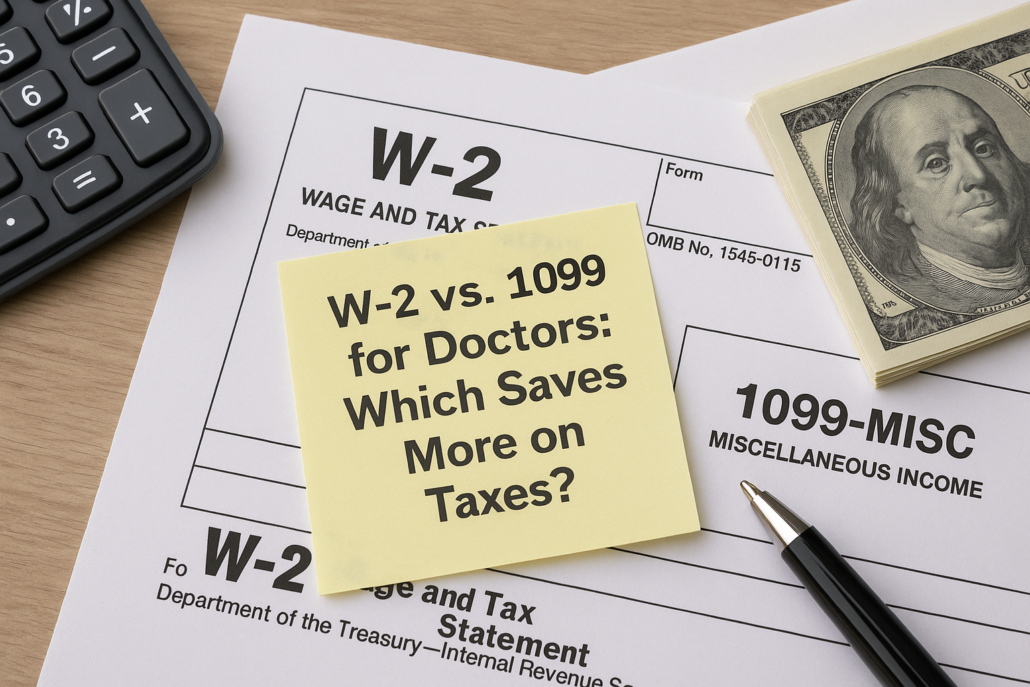Posts Tagged ‘tax advisor for doctors’
Remote Medicine, Real Taxes: What Doctors Working Online Need to Know
The way physicians practice has shifted. If you’re delivering care remotely—full time or just supplementing your income—you’re operating in a different tax environment. One that requires more tracking, more strategy, and yes, more decisions. This guide walks you through what doctors working in telemedicine need to understand about taxes—and how to make it all work…
Read MoreW-2 vs. 1099 for Doctors: Which Saves More on Taxes?
Not all income is treated the same—especially when you’re a physician. Whether you’re working as a full-time W-2 employee or contracting as a 1099 independent doctor, how you’re classified can make a real difference on your taxes, deductions, and long-term financial strategy. Let’s walk through what each option really means, what it costs you, and…
Read MoreWhen Does a Roth Conversion Make Financial Sense?
A Roth conversion lets you shift money from a pre-tax retirement account into a Roth IRA. The trade-off: you pay taxes now in exchange for tax-free withdrawals later. Done strategically, a Roth conversion can lower your lifetime tax bill, reduce required minimum distributions (RMDs), and give you more control over retirement income. But the benefits…
Read More


